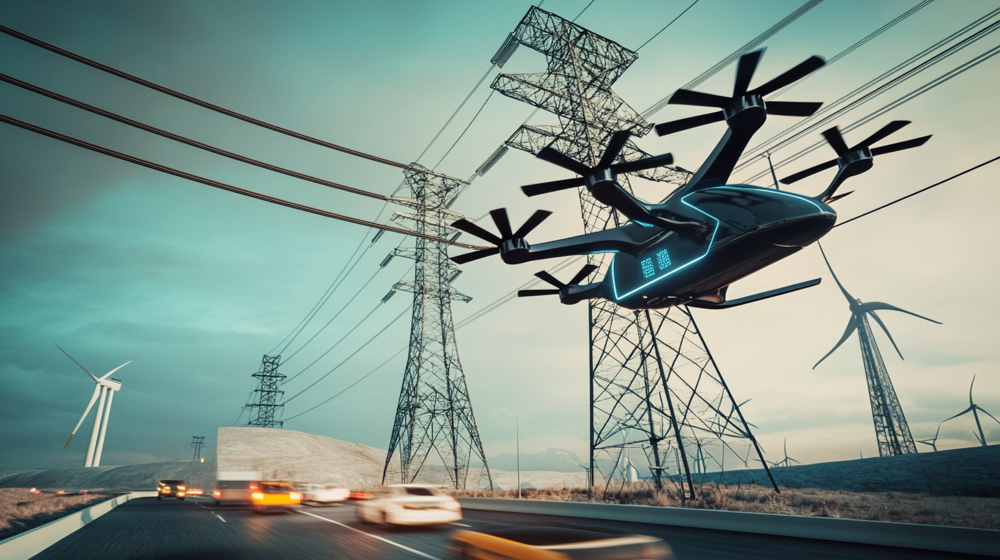Chartering a private jet represents a significant financial investment, but its value proposition extends far beyond luxury. Private aviation offers unparalleled flexibility, productivity, and operational convenience for businesses, high-net-worth individuals, and those prioritizing time efficiency. This report will evaluate when private jet chartering becomes a strategically justified choice. Key findings include hourly charter rates ranging from $1,800 to $14,000, time savings of 6–10 hours per trip compared to commercial flights, and enhanced accessibility to over 5,000 airports globally. The decision to charter vs flying commercial hinges on factors such as group size, travel frequency, itinerary complexity, and the economic value of time saved.
eVTOL News | Electric Aircraft News | Advanced Air Mobility News
News
In a landmark European urban air mobility achievement, EHang successfully conducted the first unmanned eVTOL flight in an urban environment. The Chinese company's EH216-S aircraft completed this groundbreaking demonstration in Benidorm, Spain, on February 28, 2025, marking a pivotal moment in the evolution of advanced air mobility across the continent.
Advanced Air Mobility and Electric Vertical Takeoff and Landing (eVTOL) aircraft will redefine urban mobility by offering point-to-point aerial transportation. However, their integration into densely populated areas will demand careful planning across three related disciplines: flight corridor design, acoustic impact mitigation, and community acceptance.
Beyond Aero, a French startup founded in 2020, is developing a hydrogen-electric business jet, the BYA-1 (also referred to as "One"). Designed as a clean-sheet aircraft optimized for hydrogen propulsion, the BYA-1 aims to decarbonize private aviation without compromising performance or luxury. With a targeted entry-into-service date before 2030, This concept aircraft represents a potential contribution to zero-emission air travel.
ZeroAvia’s innovative 600 kW electric propulsion system (EPS) has found its first customer in Jetcruzer International, marking a significant step in commercializing hydrogen-electric aviation. This partnership aims to integrate ZeroAvia’s technology into the Jetcruzer 500E, a six-seat hydrogen-electric aircraft targeting entry into service by 2028.
Today, Fixed Base Operators (FBOs) are redefining excellence in business aviation through a strategic fusion of technological advancement and customized service delivery. As these business aviation service centers deploy sophisticated AI systems and predictive analytics, they're not just modernizing operations; they're fundamentally reimagining the private aviation experience through a careful balance of digital innovation and personalized.
The future of advanced air mobility (AAM) relies on groundbreaking eVTOL aircraft and robust and innovative power infrastructure. Vertiports, the hubs for these electric aircraft, face significant energy challenges as they transition from concept to commercial operation.
Chinese startup Fengfei, known as AutoFlight in the West, has secured a production certificate from the Civil Aviation Administration of China (CAAC) for its V2000CG Carry-All autonomous cargo aircraft. This certification, awarded on December 24, 2024, marks the world’s first production approval for an eVTOL exceeding 1,000 kg (2,205 lbs), with the aircraft’s gross weight capped at 2,000 kg (4,400 lbs). With this certification, AutoFlight is set to accelerate mass production, secure individual aircraft certifications, and enhance deliveries and after-sales services, further advancing its position in the eVTOL industry.
The introduction of NASA’s sulfur selenium solid-state battery is a game-changer in the quest for sustainable aviation. This innovation, spearheaded by the agency’s Solid-state Architecture Batteries for Enhanced Rechargeability and Safety (SABERS) project, addresses critical challenges in energy storage, safety, and performance for electric aircraft. By redefining the capabilities of battery technology, this breakthrough can accelerate the adoption of Advanced Air Mobility (AAM) and electric vertical takeoff and landing (eVTOL) systems.
EHang Holdings, a leading Chinese eVTOL (electric vertical takeoff and landing) company, has launched an innovative automated takeoff and landing facility in Shenzhen's Luohu Sports and Leisure Park. This infrastructure supports the commercial operations of their pilotless EH216-S electric aerial vehicle (EAV), marking a significant advancement in urban air mobility (UAM).
- Honeywell Anthem Gets Boost from NXP Partnership for Advanced Air Mobility
- Shanghai's Action Plan for the Low-Altitude Economy Industry 2024–2027
- Impact of eVTOL Aircraft Outwash on Vertiport Design
- Skyscraper Vertiports: Converting Highrise Buildings and Parking Structures for Vertiport Operations
- 2025 outlook for vertiport and advanced air mobility industry
- EHang post positive Q2 2024 financial result
- AAM Advanced Air mobility training: Advanced Air mobility and Vertiport Design and Operations educational programs 2024
- China Forms Low Altitude Economic Alliance.
- Lyte LA-44 SkyBus: Next-Generation Regional Aviation aircraft with Hydrogen-Electric VTOL Technology
- Minnesota Approves Jetsons Law. Legislation regulating flying cars









